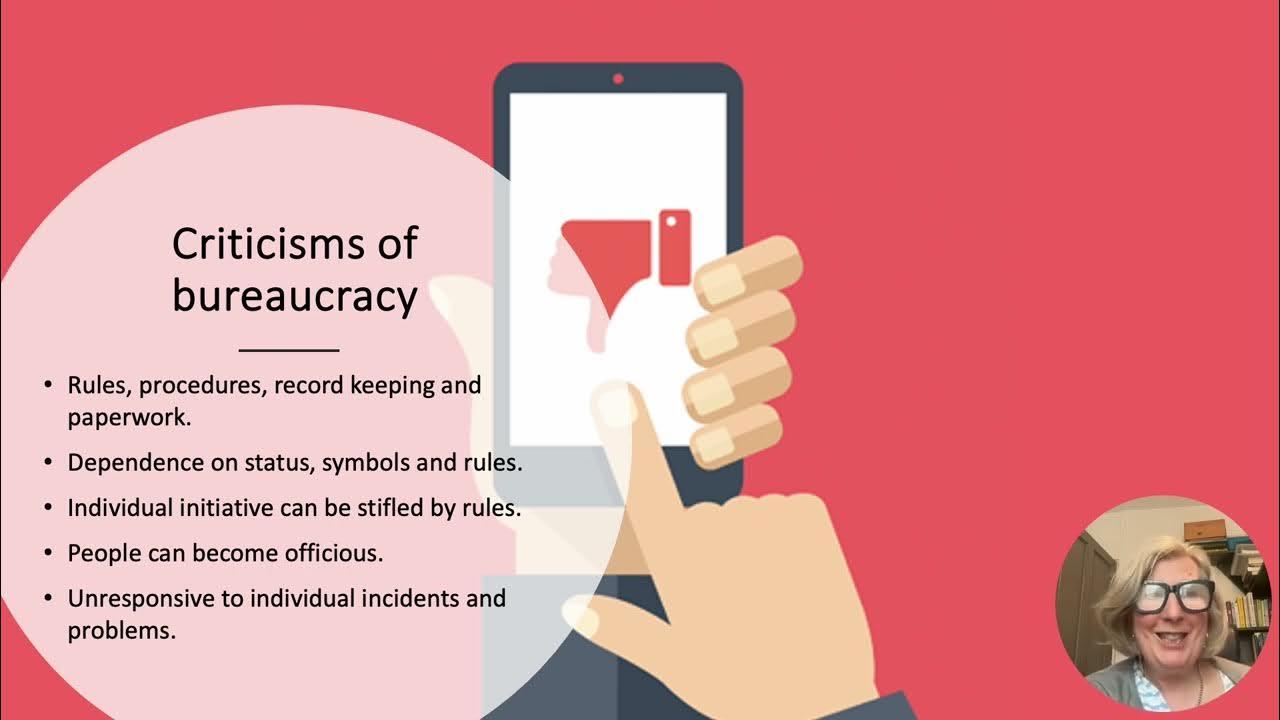PERKEMBANGAN TEORI MANAJEMEN
Summary
TLDRThis video explores the evolution of management theories, highlighting four main streams: Scientific Management, Classical Management, Human Relations Movement, and Modern Management. Key figures like Robert Owen, Frederick Taylor, Henri Fayol, and Elton Mayo are discussed, emphasizing their contributions to improving efficiency and understanding employee motivations. The video outlines the principles of each theory and addresses their limitations, ultimately showcasing the importance of adapting management practices to the unique dynamics of modern organizations. This comprehensive overview equips viewers with essential insights into effective management strategies.
Takeaways
- 😀 Understanding the evolution of management theories is crucial for effective management practices.
- 🏭 Scientific management emerged during the Industrial Revolution, focusing on systematic approaches to improve efficiency.
- 👷 Key figures in scientific management include Robert Owen, who emphasized employee welfare, and Frederick Taylor, known as the father of scientific management.
- 📈 Core principles of scientific management include work specialization, scientific methods for problem-solving, and effective employee selection and training.
- 📋 Classical management theory introduced five core functions of management: planning, organizing, commanding, coordinating, and controlling.
- 📖 Henri Fayol contributed 14 principles of management that emphasize communication and coordination in achieving organizational goals.
- 🤝 Human relations theory highlights the social aspects of work, emphasizing employee motivation, satisfaction, and the impact of informal groups on productivity.
- 🔍 Key figures in human relations include Elton Mayo, known for the Hawthorne Studies, and Douglas McGregor, who developed Theory X and Theory Y.
- 📊 Modern management theories focus on quantitative analysis and behavioral approaches, integrating data-driven decision-making with human behavior considerations.
- 🌐 The systems approach views organizations as interconnected parts, while the contingency approach suggests adapting management practices to specific situations.
Q & A
What is the main topic of the transcript?
-The main topic of the transcript is the development of management theories, including the historical context and key contributors to various management approaches.
What are the four main streams of management theory discussed?
-The four main streams of management theory discussed are Scientific Management, Classical Organization Theory, Human Relations, and Modern Management.
Who were the key figures associated with Scientific Management?
-Key figures associated with Scientific Management include Robert Owen, Frederick Taylor, and Henry Gantt, each contributing to principles that improve productivity and efficiency.
What is the significance of the Industrial Revolution in the context of management theory?
-The Industrial Revolution marked a turning point that increased the need for systematic management approaches, as organizations sought to optimize production and labor efficiency.
What are the limitations of Scientific Management mentioned in the transcript?
-The limitations of Scientific Management include a lack of attention to human behavior, potential decreases in worker satisfaction, and a focus primarily on economic needs without addressing social factors.
How did Classical Organization Theory contribute to management practices?
-Classical Organization Theory, represented by figures like Henri Fayol and Mary Parker Follett, emphasized principles such as planning, organizing, and leading, which are foundational to effective management.
What is the focus of Human Relations theory?
-Human Relations theory focuses on the social and psychological aspects of work, emphasizing the importance of employee satisfaction and interpersonal relationships in boosting productivity.
What did Elton Mayo's research reveal about employee motivation?
-Elton Mayo's research revealed that factors such as social interactions and managerial attention significantly influence employee motivation and productivity, beyond mere financial incentives.
What distinguishes Modern Management approaches from earlier theories?
-Modern Management approaches, such as Quantitative Management and Organizational Behavior, integrate earlier theories while focusing on data-driven decision-making and the complexities of human behavior in organizations.
What are the key elements of the Systems Approach in management?
-The Systems Approach views organizations as interconnected parts that function together, considering both internal and external environments and emphasizing holistic management practices.
Outlines

This section is available to paid users only. Please upgrade to access this part.
Upgrade NowMindmap

This section is available to paid users only. Please upgrade to access this part.
Upgrade NowKeywords

This section is available to paid users only. Please upgrade to access this part.
Upgrade NowHighlights

This section is available to paid users only. Please upgrade to access this part.
Upgrade NowTranscripts

This section is available to paid users only. Please upgrade to access this part.
Upgrade NowBrowse More Related Video

PERKEMBANGAN ILMU MANAJEMEN

INDU1173 Approaches to organisation and management Lecrure 1

Sejarah Perkembangan Manajemen dan Teori Teori Manajemen | Topik 2 Pengantar Manajemen

PENGANTAR MANAJEMEN PART #2 - PERKEMBANGAN TEORI MANAJEMEN || JURUSAN MANAJEMEN - Albert Steinado

EKMA4116 Manajemen - Konsep Dasar dan Perkembangan Manajemen

[UFMS Digital] Fundamentos da Administração - Módulo 2 - Unidade 1
5.0 / 5 (0 votes)